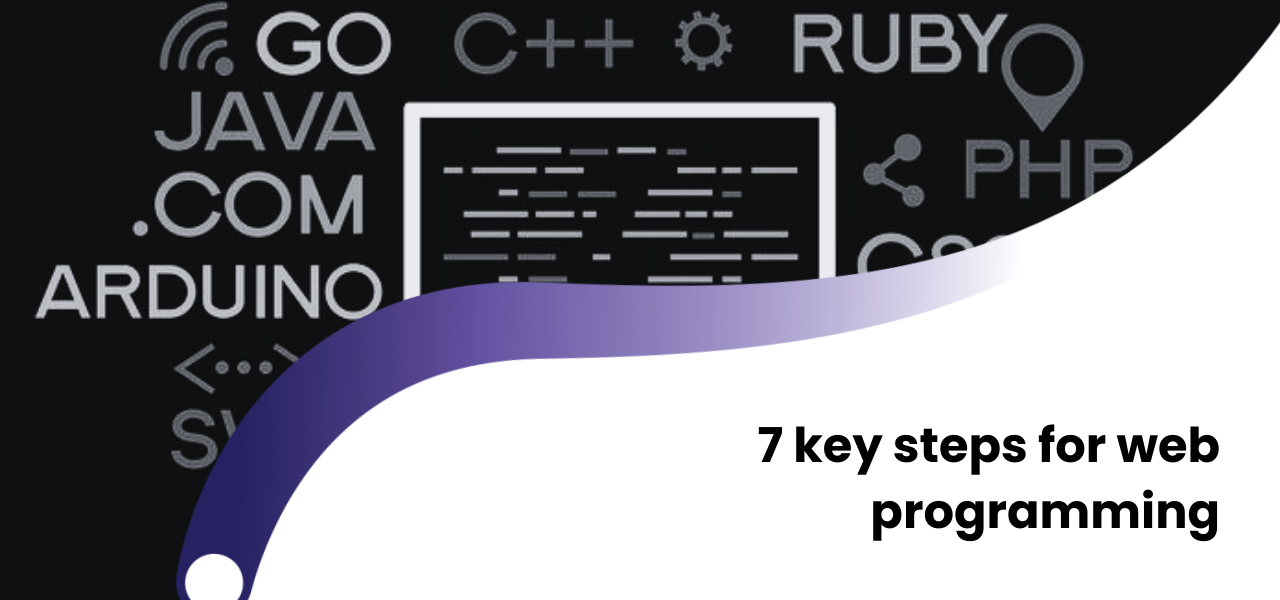Creating a website from scratch is one of the most essential steps for a modern business or personal brand. Many see this process as a complex technical task, but thanks to the development of technology, it is now accessible to almost everyone.
A successful website is more than just an online presence; it can be your digital office, your sales platform, and the first point of contact with your customers. Before starting this process, you need to plan several important steps.
In this guide, we will analyze the main stages of creating a website, the technical requirements, and the advantages of different approaches.
Step 1: Planning and Strategy
The most important stage before starting the technical process is strategy. Ask yourself these questions:
- What is the purpose of the website? To sell products, e-commerce, provide information, a corporate site, or showcase a portfolio?
- Who is your target audience? What are their needs and online behaviors?
- What will the main functions of the site be? User registration, online payment, a booking system, or just a contact form?
- What is your budget? This will directly impact the platform you choose.
This stage is the foundation of the project. Many failures stem not from technical errors, but from gaps in this initial strategic planning. Failing to define goals correctly puts the entire subsequent investment at risk.
Step 2: Choosing the Technical Foundation (Domain and Hosting)
Once your strategy is clear, you need two basic technical components for your site to exist in the online world.
1. Domain Name
A domain name is your website's address on the internet, for example, crocusoft.com. A good domain name should be short, memorable, easy to spell, and related to your brand. You can purchase a domain name from domain registrars for an annual fee.
2. Web Hosting
Web hosting is the server service where all your website's files, images, and data are stored. When someone enters your domain name into a browser, the hosting server shows your site to that visitor. There are various hosting options, such as Shared hosting, VPS, and Dedicated server. Choosing the wrong hosting is a critical technical decision that will directly affect your site's speed, security, and future scalability.
Step 3: Choosing a Website Creation Platform (Method)
This is the most critical junction in the process. There are three main ways to create a website:
1. Website Builders
Platforms like Wix, Squarespace, or Tilda are designed for those without technical knowledge. They offer drag-and-drop visual editors.
- Advantages: Very fast to start, no coding knowledge required, hosting is included.
- Disadvantages: Limited functionality, difficult to create a unique design, cannot manage complex business processes, you remain dependent on the platform.
2. CMS - Content Management Systems
CMS platforms, the most popular example being WordPress, give you more control and flexibility. WordPress powers a huge portion of the world's websites.
- Advantages: Very flexible, almost any function can be added via thousands of free and paid plugins, powerful for SEO.
- Disadvantages: Requires initial setup and technical maintenance. You must constantly monitor security and updates. This often creates a need for ongoing technical support that companies cannot always manage themselves.
3. Custom Development
This is the coding of a website from scratch by professional developers or a software company. Technologies like Python, PHP, or .NET are used here.
- Advantages: Unlimited functionality, a completely unique design, high security and performance, and full integration with your other business systems, for example, ERP or CRM.
- Disadvantages: Requires a higher initial investment and a detailed planning period. This is not a quick solution, but a long-term business tool.
Conclusion: Which Path Is Right for You?
Creating a website from scratch is not a one-time project; it is an ongoing process. Your choice depends directly on your goals.
For a simple portfolio or blog, starting with a website builder or WordPress might seem logical. However, if your business's main source of revenue will depend on this site, if you need a complex platform, a unique online service, or a system requiring high security, then entrusting this job to professionals is the only sustainable path. Working with a technical partner is more cost-effective in the long run than the problems and hidden costs created by do-it-yourself solutions.
At Crocusoft, we specialize in developing unique and complex web systems, portals, and platforms from scratch for businesses, precisely at the point where standard solutions are no longer sufficient.
Frequently Asked Questions (FAQ) About Website Creation
1. How much does a website cost?
The price depends on the path you choose. With website builders, you can start with a monthly fee of 15-50 AZN. For WordPress sites, the initial costs can be slightly higher. Custom development is an investment calculated based on the project's complexity.
2. How long does it take to create a website?
You can build a simple site in a few hours on a website builder. A complete WordPress site may take several days or weeks. Custom projects coded from scratch can take from several months to a year, depending on the functionality.
3. What should I do after creating a website?
Creating the website is the first step. The next steps are to constantly update the site with content, ensure its security, and implement SEO and marketing strategies to attract visitors.
 +994512060920
+994512060920





